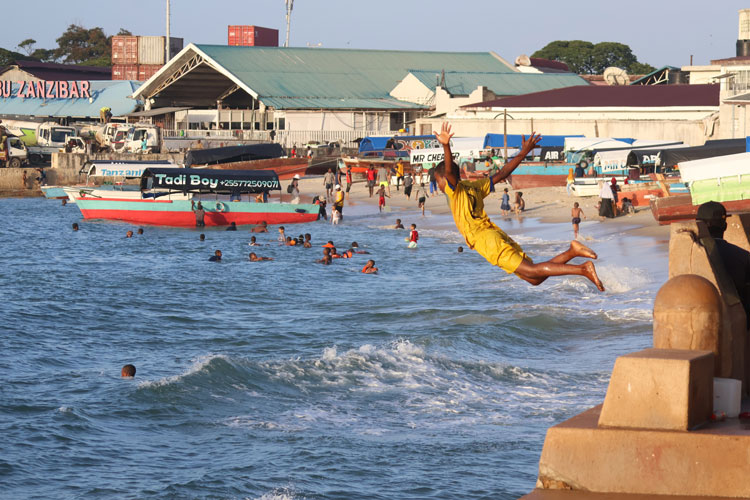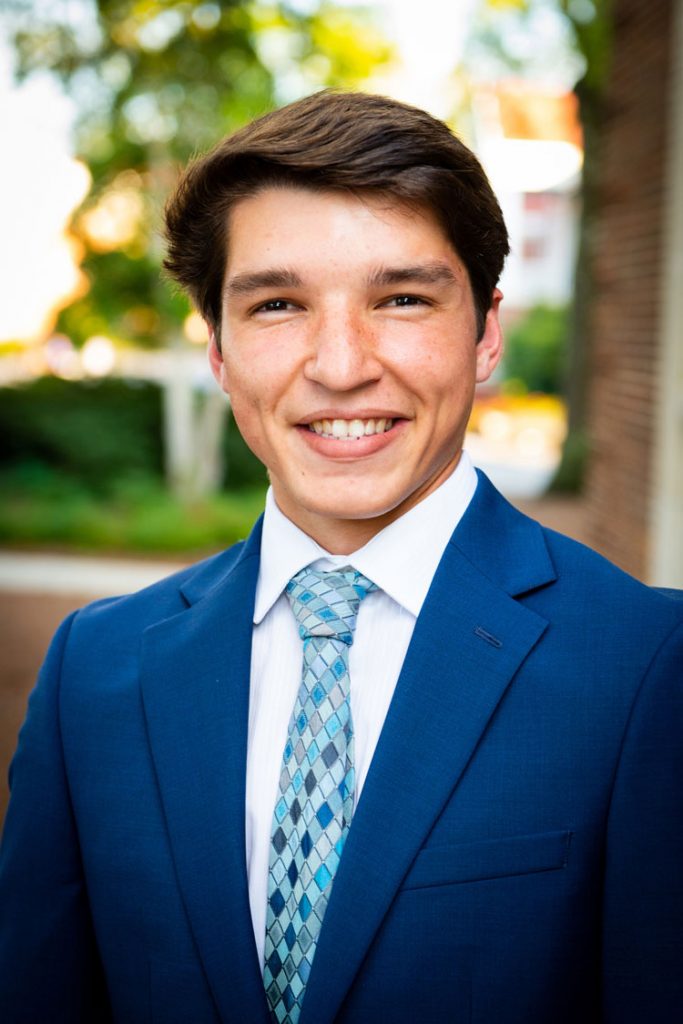Oxford native seeks to bridge gaps between scientific research and policy
From across the world, University of Mississippi biology major Christian Boudreaux received a life-changing Zoom call from Chancellor Glenn Boyce last week. Despite Zanzibar‘s spotty internet service, the message was clear: Boudreaux had won a coveted Truman Scholarship.
The Harry S. Truman Scholarship Foundation, the nation’s official living memorial to the 33rd U.S. president, announced the junior from Oxford as the university’s 19th Truman Scholar on Friday (April 12). The foundation awards scholarships based on outstanding leadership potential and commitment to a career in public service.
“If you would have spoken to me about this in high school, I would have never believed the opportunities I have had and the things that I have been able to accomplish in while in college,” Boudreaux said. “That is almost entirely as a result of the investment that the University of Mississippi has made in me and from the individuals that have helped to foster and direct the potential that they saw in me.”
Boudreaux is studying in Tanzania through a Zanzibar Coastal Ecology and Natural Resource Management program, where he is learning about the managerial side of conservation. During his call with Boyce and other university leaders, he was congratulated and challenged to make a positive impact on his generation.
“We are so proud of Christian,” Boyce said. “More than anything else, the Truman Scholarship is about taking on the mantle of leadership for your generation. That’s something I hope Christian will accept – perhaps the ultimate challenge of his life; we are counting on him to take care of his generation.”
The Sally McDonnell Barksdale Honors College student is a previous recipient of prestigious Stamps and Goldwater scholarships. He was named to UM’s 2023-24 class of Who’s Who Among Students in American Colleges and Universities.
The Truman Scholarship offers up to $30,000 for graduate or professional school and recipients participate in leadership development activities and have special opportunities for internships and employment with the federal government. Boudreaux was selected from this year’s pool of more than 700 applicants nationwide.
Boudreaux has a passion for service, research and the environment – specifically, the ocean.
“There are few places of study left on Earth that, in my opinion, are as exciting and unknown as the ocean,” he said. “The degree to which so much of the ocean is yet unstudied and undocumented causes a great deal of interest as a budding scientist and researcher.
“In the advent of global warming, understanding and protecting our ocean is more important than ever before. In my career I am hoping to combat the adverse effects of climate change on the marine environment and work to conserve it to the best of my ability.”
Boudreaux is an active leader in promoting environmental sustainability and conservation efforts on campus and beyond. He has held several leadership roles, including serving as the compost collective manager for the university’s Office of Sustainability, where he helped organize compost pickups and educate students.
He also founded Aqua Culture, a student organization that works to maintain and preserve aquatic environments through projects such as invasive species removal and water quality monitoring. As a freshman, he served as president of Hill Country Roots, a student organization that focuses on preserving Mississippi‘s forests and native trees.
Besides his leadership roles, Boudreaux is a dedicated researcher, said Vivian Ibrahim, director of the UM Office of National Scholarship Advisement.
“Although the COVID-19 pandemic made it difficult for incoming freshmen to have lab research experiences, Christian did not let this hold him back,” Ibrahim said. “He’s a go-getter.”
Boudreaux has conducted research in five different labs, including work on the causes of congenital heart defects in infants, and an additional research experience in Ecuador. He has published one article in the journal Aquaculture Reports and is co-authoring another paper with hopes of publishing in Nature.
Ole Miss biology professor Tamar Goulet initially met Boudreaux when he was a high school student who sought her advice on pursuing a career in marine biology. Since enrolling at the university, he has contributed to her lab studying coral chimeras, which are a single coral colony made up of genetically distinct individuals.
Last summer, Boudreaux and Goulet traveled to Israel to conduct research on coral chimeras in the Red Sea. He was able to experience marine labs there while also getting to dive and observe the organisms firsthand, Goulet said.
“He is absolutely a go-getter, but that doesn’t even begin to encompass Christian,” she said. “The mere fact that he has stayed in multiple countries during his undergraduate years while completing coursework and maintaining an excellent GPA is telling. He seizes every opportunity to get the most out of every experience.
“He is not afraid to embrace and experience the culture – he lives life to the max and is going places. I think his multiple awards speak for themselves.”
This summer, Boudreaux will complete an internship with the National Oceanic and Atmospheric Association as a Hollings scholarship recipient. He will work at the National Sea Turtle Genetics Laboratory in La Jolla, California, to develop a protocol to extract DNA from leatherback sea turtle eggshells, which will allow researchers to noninvasively gather genetic data to support conservation efforts.
All these experiences helped shape Boudreaux’s understanding of science and research, but it was his efforts in service and leadership that set him on his current path, Ibrahim said.
“He’s working to bridge the gap between scientific research and policy making,” she said. “With his experiences in science, public service and leadership, Christian is in the perfect position as a citizen scientist to rectify this issue and is committed to being a change agent in his field.”
Boudreaux said his next big step is to pursue a doctoral degree and conduct research at the “intersection of organism resilience, climate change, genetics and marine resource management.”
“Since completing my research project in Ecuador concerning the use of genetic sequencing to determine species inter-relatedness and the presence of new species to science, I have a particular interest in the integration of genetics with marine biology, specifically as it relates to an organism’s ability to respond to climate stress,” he said.
“I will utilize genetic techniques to identify the genes that are most useful for adaptability and survival to strengthen populations and preserve biodiversity in the wild.”
By Erin Garrett






